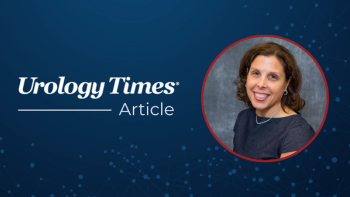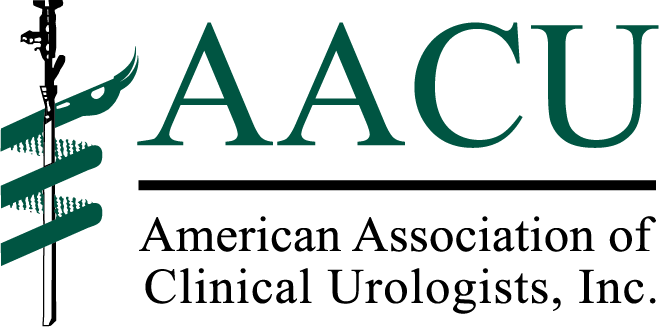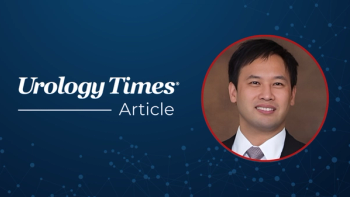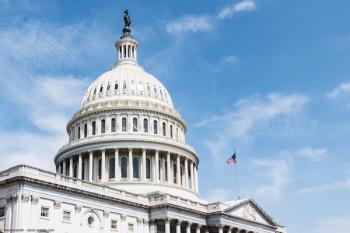
AACU annual meeting promotes advocacy, unity, political action

National politics, state advocacy issues, and innovative topics in urologic care came together as urologists from every practice setting and at varied points in their careers gathered in Washington for the AACU 2019 annual meeting.
Based on a partnership with Urology Times, articles from the American Association of Clinical Urologists (AACU) provide updates on legislative processes and issues affecting urologists. We welcome your comments and suggestions. Contact the AACU government affairs office at 847-517-1050 or
National politics, state advocacy issues, and innovative topics in urologic care came together as urologists from every practice setting and at varied points in their careers gathered in Washington for the AACU 2019 annual meeting. Over two days in October, notable speakers and special guests led engaging conversations on public policy, leadership development, and cutting-edge science.
Policy and leadership
The provision of health care via telemedicine was characterized as the Fourth Industrial Revolution by Southern California Permanente's Eugene Rhee, MD, MBA. Dr. Rhee kicked off the event by applauding these advances, but recognized several obstacles to widespread adoption, including reimbursement. Medicare, in particular, lags behind other payers because restrictive statutes and regulations result in partial payment for services delivered remotely. A robust discussion on technology, cross-state licensure, liability, and reimbursement took place, setting the stage for several sessions geared toward urologists interested in 21st century communication and leadership.
Also from the AACU:
LUGPA Health Policy Chair Deepak Kapoor, MD, shared his insights on recent legislative and regulatory proposals, including a rule issued Oct. 9 by the Centers for Medicare & Medicaid Services that, according to CMS Administrator Seema Verma, represents “the most significant changes to the Stark law since its inception.” Dr. Kapoor agreed, and summarized various elements of the rule and the exceptions it creates for physicians who participate in value-based care payment models.
Dr. Kapoor’s presentation also included an analysis of proposed changes to Medicare reimbursement. He argued that despite the widespread attention paid to the annual rules, the proposed changes to CPT codes and other policies will have a relatively minor impact on urology this year.
UROPAC Chair Robert Bass, MD, MBA, highlighted key policy issues that the AACU has been active on, including MACRA reform, reducing the burden of prior authorization, Stark law modernization, and greater transparency within the U.S. Preventive Services Task Force. As Congress addresses these and other issues relevant to the house of medicine, such as prescription drug pricing and surprise medical billing, Dr. Bass assured participants that the urologic community will be well represented.
AACU State Advocacy Network Chair William Reha, MD, MBA, meanwhile, detailed myriad initiatives under the banner, “Virtual Network, Real Results.” Dr. Reha noted that state legislatures introduce an average of more than 125,000 bills per year, or 23 times the number introduced each year in the U.S. Congress. That’s why physician advocacy groups like the AACU and AUA must collaborate with state medical associations and other national specialty physician organizations.
When an issue directly impacts urology, however, Dr. Reha insisted that the AACU moves quickly to "alert, educate, and mobilize the entire urologic community." Campaigns identified by Dr. Reha and AACU State Affairs Manager Ross Weber included: cost-free prostate cancer screening coverage in New York; nursing assistant authority to diagnose and treat UTIs in Connecticut; management of conditions contributing to variations in physical sex characteristics in several states; and a national perspective on medical liability reform and state-funded graduate medical education.
Next:
Dr. Thrasher assured that through continued collaboration with groups like the AACU and AUA, the program will deliver remediation products to fill knowledge gaps and provide a fair, transparent, and valuable certification process.
American Medical Association President Patrice Harris, MD, selected to deliver the annual Hoffman/Carson Lecture, spoke to the importance of collaboration and unity in the medical advocacy community. The lecture, named for two of the AACU's founding members, provided attendees a rare look into the inner workings and legislative priorities of America’s largest association of physicians. Dr. Harris described the five pillars of the AMA-the House of Delegates, Members, Practice/Business Tools, Research & Education, and Advocacy-and how together they make the AMA “physicians’ most powerful ally in patient care.”
Read:
The first day of the meeting closed with the presentation of the inaugural Herb Sohn Award for Excellence in Advocacy to Jeffrey Frankel, MD, and Harry Miller, Jr., MD. Herb Sohn, MD, JD, a past president of the AACU, remained active in politics and the practice of medicine until earlier this year, when he passed away at the age of 92. During his long professional life, Dr. Sohn earned a law degree and ran for Congress several times and once for mayor of Chicago. It was during that 1989 mayoral campaign that Dr. Sohn said, “When one spends his whole lifetime just making money, that is a living; but, when one can serve his community and his fellow beings, that is a life.”
Cutting-edge science
In addition to presentations on public policy and leadership development, the AACU 2019 annual meeting included several sessions dedicated to the art and science of medicine. Vanderbilt Urology was well represented by Nicole Miller, MD, and Melissa Kaufman, MD, PhD, who delivered educational presentations on bladder outlet management and urologic trauma. Duke University's Glenn Preminger, MD, preached the tenets of medical stone management, reminding participants of the risk factors and the latest developments in evaluation techniques and treatment. One attendee described the session as "a spiritual experience," perhaps a testament to the level of analysis Dr. Preminger provided about a disease that is so notoriously difficult to prevent, diagnose, and treat.
UROPAC physicians visit Capitol Hill
Several urologists who attended the meeting remained in Washington for one additional day to meet with key lawmakers about health care policies that could impact the practice of urology. As representatives of UROPAC, the delegation attended nearly 20 meetings with bipartisan candidates from both the Senate and House and from each of the congressional committees with jurisdiction over health care policy. Broadly, the group's goal was to educate lawmakers about the practical impact of existing and proposed laws on their professions and their patients. The urologists also discussed hot-button issues, such as prescription drug prices, "surprise" medical billing, and Stark law modernization, with the legislators.
Held as the AACU concluded its 50th year, the Annual Meeting provided an "opportunity to report on the advocacy successes in this ever-changing political landscape," as stated by Young Urologist Committee Chair Seth Cohen, MD. "This organization can only be as effective as the support the urology community provides it," he said.
Newsletter
Stay current with the latest urology news and practice-changing insights — sign up now for the essential updates every urologist needs.






